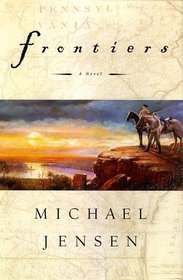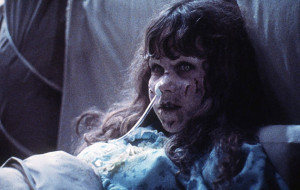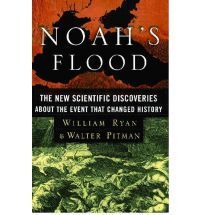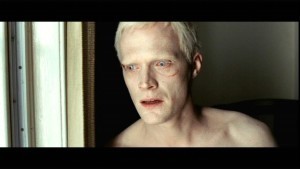Michael Jensen's Blog, page 5
September 13, 2016
Why Did You Update, Rename, and Re-release Your Books?
Whoa, there is a lot in that question, so let’s unpack it, shall we?
I re-released Man & Beast (formerly Frontiers) and Man & Monster (formerly Firelands) for several reasons. First, because I got the rights back to them and there had never been an ebook version of either. And even though it’s been a long time since both came out, I still get people asking about getting copies of both Frontiers and Firelands.
Given the people what they want, right?
And re-releasing the books let me fix some things I didn’t like about how they originally turned out. It’s not often we get a do-over, is it? I was never crazy about the cover for either book. Simon & Schuster actually commissioned a painter to do the cover for Frontiers and it does look beautiful in some respects. It also looks kind of cheesy to me. As for Firelands, let’s just saw Alyson didn’t have a lot of dough to spend on the cover. And not to brag, but I think the new covers turned out pretty awesome.
 As for the rewriting, there isn’t that much in either actually. I tweaked John Chapman’s character in Frontiers (he plays a smaller part in Firelands; the two books are standalones and you don’t have to read them in order). Upon rereading the book all these years later, I found him a little … whiny. I also cleaned up a couple of loose plot threads, tweaked a few things here and there and “Voila!” an updated book ready for the digital age!
As for the rewriting, there isn’t that much in either actually. I tweaked John Chapman’s character in Frontiers (he plays a smaller part in Firelands; the two books are standalones and you don’t have to read them in order). Upon rereading the book all these years later, I found him a little … whiny. I also cleaned up a couple of loose plot threads, tweaked a few things here and there and “Voila!” an updated book ready for the digital age!
Firelands has undergone slightly more renovations. In the original version, a rather prominent character comes to an untimely end. And a lot of readers hated that. At the time, I stood by my decision to off the character. I viewed it as essential to another character’s story arc.
Over time, however, I came to regret it. Novels, television shows, and movies are littered with dead LGBT characters. And I hated the idea that I had contributed to that, even if for a good reason.
So when I had the chance to fix that, I jumped at it. And I think it works just as well. (I won’t say anymore because I don’t want to spoil things if you haven’t read it already.
But why the new titles?
I wanted a fresh start and I had the idea for a series built around the characters. Look for Man & Demon after I’ve finished writing The Drowning World series!
Interested in reading Man & Beast or Man & Monster? Head over here and here!
September 29, 2014
No More Ugly Villains!
What’s the first thing you think when an albino character appears in a movie? I bet it’s “Ew, what a creep! He’s got to be a villain!” And you’d usually be right. From Harry Potter’s Voldemort to the killer twins in The Matrix to The DaVinci Code’s psycho killer, albinism has been used as a way to make a villain seem especially wicked by making them even more “other” and frightening.
It’s not just albinism that is used this way, of course. Anything that deviates from what society considers to be the “norm” or “attractive” has been used to make fictional characters extra creepy. Obesity, homosexuality, excessive height, dwarfism, or any other disability or deformity have all been used as a way to say “Be really afraid of this character!”
Enough already! Physical unattractiveness does not equal evil and beauty does not equal good despite what Lord of the Rings would have us believe. (Almost everything in Mordor is incredibly ugly and usually dark-skinned, which touches on the whole issue of racism in LOTR. Yeah, yeah, J.R.R. Tolkien was a creature of his time, but that doesn’t mean we shouldn’t discuss it today.)
It’s not just movies that do this, of course. Television, theater, and, of course, books have all relied on this visual shortcut to communicate a villain’s malformed character.
Am I saying that people with albinism can’t be villains? Of course not. But I would ask the question, how come they are almost never the good guys, much less the actual hero? (Tyrion on Game of Thrones is a noteworthy character for little people for a good reason. He might not be a hero exactly, but he’s a complicated character and a fan favorite as opposed to comic relief or the embodiment of evil that people love to hate that, which is the usual fate for people who aren’t “normal.”)
The problem isn’t just that writers use albinism and homosexuality as a way to make their characters distinctive. The problem is that these traits are almost never used to make the heroes more distinctive. Imagine if Indiana Jones had been an albino or Captain Kirk was an effeminate gay man or one of the wizards in Lord of the Rings had been a black man (and some of the orcs white!).
The fact that all of those ideas seem so laughable just proves how marginalized those two groups of people still are. And how far we still we have to go.
I recently watched Snowpiercer starring Chris Evans. While Chris was rather scruffy, he was still smoking hot because, well, he’s Chris Evans. Of course he was also the movie’s hero (if a reluctant one). Meanwhile, the oddest looking person was Tilda Swinton’s character who had buckteeth and a huge nose. Can you guess if she was good or bad? She was bad, naturally. Very, very bad, which probably made it easier for the writer/director to communicate her inherent immorality.
Yes, yes, I know that when it comes to art, and especially movies, most people like to watch or read about good-looking people. Which means the protagonists are almost always incredibly handsome or beautiful. But I think in 2014 it’s wrong for artists to fall back on the tired old tropes that beauty equals good and evil equals bad. I want to be better than that and I promise you that I’ll never have an albino villain in any of my books.
August 20, 2014
I Think I’m Seeing Demons But I’m Not Going to Say Anything
One of my biggest pet peeves about horror novels (and by extension, horror movies) is when characters act in absolutely preposterous ways that make me want to scream at the book/movie. I think characters usually act this way because A) the author wants to stretch out the story or B) uses it as a cheap way to create tension. That’s lazy writing IMHO.
I’ve read a number of novels of late where the characters behaved in absolutely preposterous ways that I don’t believe. And I don’t just mean the trope where the character goes into the empty haunted house by themselves on Halloween night. I’m referring to characters who do way more stupid stuff, like witnessing all kinds of bizarre crap going on around them, but instead of acting like a normal person and running away or getting help or doing something, they instead simply rationalize away what they witnessed.
One book I recently tried to read had a child doing increasingly bizarre things because it was possessed by a demon. In the first third of the book, the father not only gradually realizes that his child was possessed by a demon, but that this was the same demonic possession that had happened to him when he was a boy. So what did he do to help his daughter?
Nothing! At all!
The father simply kept hoping he was mistaken about what was going on — despite all evidence to the contrary — or believing that whatever was happening would simply stop — despite the fact that it showed no signs of doing so.

No, I don’t see anything out of the ordinary here. Who wants ice cream?
I didn’t buy this at all. I simply do not believe a parent that otherwise seems loving and competent would act this way. And if a character does act this way, then I don’t want to spend any time with him. He is either an asshole or incredibly stupid, neither of which I think the author intended him to be in this case. Either way, neither are traits I want in a main character I’m going to spend my evening with.
I’m currently working on a new horror novel and my goal with this book (besides being incredibly entertaining and having it turned into a move starring Cate Blanchett and Ewan McGregor) is to write characters who act the way people would really act when confronted by horrifying events. That means if their daughter spews green vomit and spins her head around, they won’t break out Candyland and act like everything is just peachy.
July 28, 2014
Flood: The Novel
So the book I’ve been working for the past several years is based on a topic that you’re probably somewhat familiar with: Noah’s flood. Yeah, that Noah’s flood. Angry god, an ark filled with two of every animal, forty days and nights of rain. No, I haven’t gone and found religion. I was born a little heathen and a heathen I remain. But I am interested in the historical basis for the legend of Noah’s flood. What’s that you say? There is a historical basis for a worldwide flood?
Yep, and it’s laid out in a book called  Noah’s Flood: The new scientific discoveries about the event that changed history by William Ryan and Walter Pitman. I found Ryan and Pitman’s theory so provocative that it grabbed hold of my imagination and refused to let go until I’d written Flood, my fictionalized version of what has become known as the Black Sea deluge hypothesis.
Noah’s Flood: The new scientific discoveries about the event that changed history by William Ryan and Walter Pitman. I found Ryan and Pitman’s theory so provocative that it grabbed hold of my imagination and refused to let go until I’d written Flood, my fictionalized version of what has become known as the Black Sea deluge hypothesis.
What is that exactly (other than quite a mouthful to say!)? It’s the theory that as the glaciers retreated at the end of the last ice age, rising ocean levels breached the Bosphorus Strait in approximately 5700 BC and sent unimaginable torrents of water down into what was then the freshwater Black Lake. The subsequent catastrophic flooding drove scores of people from their homes near the lake in an event that was passed down through history and eventually gave rise to the legend of Noah’s Flood.
When I read Noah’s Flood my imagination was utterly captivated as I tried to envision what such an event would look like. For the people who witnessed it there would be no precedent for such an event, no “natural” way to explain such an occurrence. It could only be the work of gods. Presumably very angry gods.
As soon as I understood the theory of the Black Sea deluge, I knew I had to write a novel about it. I spent a year researching the various cultures that lived around the Black Lake at that time. That included the Vinca, Karanovo, and LBK, just to name a few. That research led me to read about the ancient Turkish city of Çatalhöyük, quite possibly the first large-scale city in the world. While Çatalhöyük is located high on the Anatolian plateau, far from the Black Sea, it existed at the time of the Black Sea flood and there is evidence that the people around the southern edge of the Black Lake had a fair bit in common with the folks over at Çatalhöyük. That gave me the idea to set part of my story in a city based on Çatalhöyük, but set on the shores of the Black Lake which would swallow the city when the flooding started.
That novel became Flood and tells the story of three very different people caught up in the deluge as they try to save themselves and their loved ones. Eventually, fate brings them together and their story of survival just might be how the legend of Noah’s Ark came to be!
July 27, 2014
Why Historical Fiction?
One of the most frequent questions I get asked is “why historical fiction?” Well, because I like it! A lot. As far back as I can recall, I’ve been most attracted to three kinds of fiction: historical fiction, science fiction, and horror. My life wasn’t utterly horrible as a kid, but I definitely needed the escapism that I found in the three genres. Even if I couldn’t really run away to the mysterious worlds of the past or the exciting worlds of tomorrow, reading about them made me feel as if I could for a little while.
In historical fiction, I’m most partial to books about the ancient world — the farther back the better. I’m fascinated by the people, cultures, and empires that existed thousands of years ago. What I wouldn’t give to see the Wall of Jericho or the Egyptian pyramids being constructed! How exactly did they build them? Why did they build them? Why did their civilizations fall?
Some of my favorite historical fiction books include Jean Auel’s “Clan of the Cave Bear” books and Steven Saylor’s Roma Sub Rosa series about Goridanus the Finder. I don’t only like reading about ancient worlds, though. More recent history is pretty fascinating too. Ken Follett’s Pillars of the Earth books are some of the best books of any kind and one of my favorite gay historical fiction novels is As Meat Loves Salt.
I also love reading science fiction including authors like Arthur C. Clarke, John Scalzi, and Hugh Howey. The thing I love most about science fiction are the endless possible futures that can be conjured up, from entire worlds being contained inside a giant spaceship (“Rendezvous with Rama”) to an unlimited number of parallel earths (“The Long Earth”) to an alternate version of history (Harry Turtledove, Taylor Anderson) that has aliens arriving in the middle of World War II, totally changing the course of history.
So why don’t I write science fiction? It’s that pesky word “science.” I didn’t do so hot in those types of subjects in school, so I figure I’m better off leaving sci fi to the geeks who actually understand quantum physics, the gravitational pull of dark matter, and who can convincingly use terms like the “plane of the ecliptic.”
Which leaves us with horror as the third genre I most enjoy. I honestly can’t say what appeals to me about horror novels. I suppose like many people, I must find something cathartic in reading about horrible things happening to people, but in that case, why don’t I like horror movies? Because I really, really don’t. I’m too squeamish to stomach much blood and hate watching people suffer.
And yet I can read about those same things happening without any problem. And write about them as it turns out. Because I don’t just write historical fiction, I write historical horror fiction. Hey, I created a new genre! In “Frontiers,” a really sweet guy gets trapped on the American frontier with a psychotic monster, while in “Firelands,” another very sweet guy ends up being stalked by a actual monster known to American Indians as a “Wendigo.”
I suppose this all says something my psychological make-up. I should probably see a shrink to figure it out. Or I can just keep writing fiction as a way to deal with my neuroses!
February 4, 2013
John Scalzi Goes Where Star Trek Won't
 When I was the editor of AfterElton.com, one of my biggest complaints about gay visibility in pop culture had to do with the lack of GLBT characters in science fiction. For a genre that was supposed to be about looking forward, breaking new boundaries, and going where no man had gone before, sci fi was disappointingly heterosexual.
When I was the editor of AfterElton.com, one of my biggest complaints about gay visibility in pop culture had to do with the lack of GLBT characters in science fiction. For a genre that was supposed to be about looking forward, breaking new boundaries, and going where no man had gone before, sci fi was disappointingly heterosexual.That was especially true for Star Trek, which was so proud of being a progressive show where interracial relationships existed without comment and Russians worked with Americans (it was a Cold War thing). Too bad that progressive streak vanished when it came to gay issues. Over the course of five series and umpteen number of movies Star Trek steadfastly refused to deal with the topic -- unless it was through lame metaphors about blood viruses and genderless aliens.
AfterElton.com wrote about the issue numerous times, including when I interviewed Brannon Braga (http://www.afterelton.com/TV/2011/01/...), who really didn't get the issue, and most recently with JJ Abrams (http://www.afterelton.com/movies/2011...), who at least seemed to understand my point. (We'll have to see if the new Star Trek movie finally includes some actual gay content.)
It's true the Star Trek books have included some gay content, but since most of the world knows Star Trek through TV and the movies, I'll give the franchise only a little credit. It will only be when the powers that be add a gay character to a movie or series that I'll finally stop criticizing them.
Unfortunately, sci fi books haven't been that much better when it comes to gay characters. Don't get me wrong -- it definitely has been better (check out Steven Harper's Silent Empire series), but it is still pretty remarkable when a mainstream sci fi book includes a GLBT character in any significant way.
Which brings me to John Scalzi's Old Man's War. I confess, I'm late to the Scalzi party. I didn't have much reading time for reading fiction from 2005 until nearly 2012, and I'd especially drifted away from sci fi, which felt as if it had grown rather stale.
So when Old Man's War came out in 2005, I just missed the boat. However, I've done a lot of reading the past year and last month I finally read Scalzi's debut novel; not only was it a top notch story, it also went where Star Trek hasn't. Yep, Old Man's War includes an out gay character who is just as tough and smart and sexual as the other characters.
It's sad that this fact is still noteworthy.
After reading Old Man's War, I did some research into Scalzi and learned that when it comes to gay issues (and probably everything else) this straight man is one of the most enlightened on the planet. He's defended the inclusion of gay characters in Young Adult literature, spoken out for marriage equality, and very recently turned a bigot's homophobia, racism, and sexism into a fundraising tool (http://whatever.scalzi.com/2013/02/02...).
So be sure to check out Old Man's War (and the rest of Scalzi's oeuvre) as soon as you can. And if JJ Abrams happens to this read , John Scalzi can show you how to include actual gay characters!
January 14, 2013
"Wool'"s Hugh Howey Shows How it's Done
I'm not saying those authors are doing anything wrong finding different ways to become successful (hey, we all need a gimmick!), but I don't want to read a book that is successful mostly because the author has managed to build a big Twitter following as opposed to having written a great book.
So I confess to be little bit leery when I sat down to read Hugh Howey's "Wool." After all, Wool is the quintessential self-published author story (along with 50 Shades of Grey, I guess).
But my fears were misplaced. "Wool" is a fantastic book, its quality all the more remarkable because Howey wrote it without an editor, copy editor or any of the rest of the perks that come along with being published by a major house.
Indeed, "Wool" isn't just the best self-published book I've ever read, it's one of the best sci fi/dystopian novels I've read in a very very long time. The fact that Howey was able to have it become a monster hit without the benefit of Twitter/Facebook gives me hope that when it comes to what makes a book successful, quality is still the most important thing.
December 18, 2012
Is Serialized Fiction the Wave of the Future?
Probably the most famous of these is Hugh Howey's Wool series which he didn't even set out to write as a series. Nonetheless it became a phenomenon and has shaken up the publishing world.
And just earlier this month I became aware of two writers who have taken this concept a step further. Sean Platt and David Wright have applied the language and format of some of the best TV shows of the past ten years -- Battlestar Galactica, Breaking Bad -- to their line of serialized novels. Instead of books and chapters, Platt and Wright are writing "seasons" that consist of "episodes." And like the TV shows they are modeled on each episode is action-packed and usually ends with a cliffhanger or reveal of some sort.
Literary fiction this isn't. And that's fine with me as I prefer my reading material to have a lot of plot, which isn't to say character isn't important. It is and I've read plenty of bad serialized fiction that has loads of ludicrous plot with cliched characters. Just like bad TV.
So is this the future? I doubt it will replace traditional novels across the board, but with the rise of eReaders and with the internet shortening attention spans, I think this kind of storytelling is here to stay. Indeed, I think it could become hugely popular and that's mostly a good thing.
Yes, I worry about our shrinking attention spans, but you might as well fight the sunset for all the look you'll have in changing that. I'm just delighted that words have found a way to compete with all of the video now washing over us.




